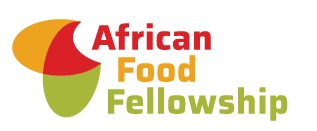The article below, published by the organisation CTA in 2019, was not written by me, but present results of some activities I led at CTA.
The AgriHack Talent initiative is one of the CTA’s best-known projects, particularly through its AgriHack Pitch start-up support programme. We take a look back on this initiative, which, over the course of just a few years, has succeeded in bringing together agriculture, entrepreneurship and new technologies.
Kigali, Rwanda, November 2013. On the margins of the International conference on ICT for agricultural development, organised by CTA and the Rwandan Ministry of Agriculture and Animal Resources, CTA launched a new kind of competition: a hackathon, where young developers could present their ideas on digital innovation for agriculture, under the aegis of its new AgriHack Talent programme. The programme was an extension of ARDYIS, a CTA project on raising youth awareness about agricultural opportunities. ‘To organise the hackathon, we held pre-selections in six countries to choose the entrepreneurs who would represent their respective countries in the final,’ recalled Kenyan entrepreneur John Kieti, technical partner of the event through the mLab East Africa incubator, which he led at the time. The basic premise was simple: to promote the employment of young people and the transformation of agriculture through new technologies. Ugandan start-up Ensibuuko was the first winner, receiving a €5,000 grant and incubation support for its project.
“Over the years, hackathons have taken place in East Africa, the Caribbean and West Africa, Kieti added. AgriHack Talent soon stepped up from a regional to an international dimension. A brand was built up, and AgriHack Talent became an excellent platform for spotting talented entrepreneurs in Africa. For each hackathon, CTA can count on a solid network of local and regional stakeholders and public authorities, but also and above all, on collaboration from incubators and hubs. Wole Odetayo and his Nigerian Wennovation Hub thus worked to organise three hackathons in Nigeria, Benin and Togo in 2014 alone: ‘Talent is all around us, but opportunities are lacking. We discovered self-taught youngsters, who were full of ideas and determination, and who could provide answers to some of Africa’s persistent challenges. With proper support and funding, they could go far, and CTA offered them this opportunity.’
From regional hackathons to an international start-up competition
In 2016, just three years after the AgriHack Talent project was launched, CTA decided to capitalise on its present success to build for the future. “There were many prototypes, existing applications that were filed away in the ‘digital drawers’ and were struggling to make it to the market”, says Ken Lohento, senior programme coordinator for the CTA’s AgriHack Talent initiative. “We chose to focus on actions targeting young innovators and entrepreneurs who already had applications, even at the prototype stage, who could be supported and see their business grow. And so Pitch AgriHack was born.” Still in the form of a competition, this initiative offers finalists various forms of support: mentoring and incubation activities, training on digital agricultural business models and investment readiness, grants of between €5,000 and €15,000, and networking with industry and finance stakeholders.
Once again, CTA turned to local and international players to strengthen its network. Financial structures Ernst & Young Sénégal and Greentec Capital partnered the initiative, as did incubators Suguba, Jokkolabs, mLab and the AAIN (African Agribusiness Incubators Network). Wole Odetayo and Wennovation were also on board between 2016 and 2018. “The idea was to pass on this experience of agritech, the knowledge that we had gained thanks to CTA through the various programmes that were carried out. It is important to share because we gain strength in numbers”, says Odetayo. John Kieti acknowledged the importance of seeing the roll-call of AgriHack competition finalists as a reference in terms of African agripreneurs, “a kind of directory, with its own structure, its own strategic intelligence, rather than relying on local public authorities to inform us of trends in different industries. If you are approved by CTA, then it’s a good sign”.
A model replicated in different countries
To date, more than 1,500 entrepreneurs between the ages of 18 and 35 have participated in AgriHack Talent activities, while some 30 incubators in 40 countries around the world have helped to set them up. Companies that were once start-ups are now reaping the benefits of new technologies in their respective countries: collectively, they have raised more than €2 million from other investors and partners, created jobs and reached several hundred thousand farmers. ‘Though FarmDrive now focuses more on financing issues through its agreement with Safaricom (a Kenyan mobile operator, one of the largest in East Africa), much of its initial success can be attributed to the support provided at various levels by CTA,’ says Kieti. BaySeddo and Sooretul in Senegal, Brastorne Enterprises in Botswana – whose mAgri platform is now a partner of Orange – have all enjoyed similar upward trajectories. Others have also seen success, such as AgroCenta, Cowtribe or Farmart in Ghana, FarmCredibly in Jamaica, eFarms in Nigeria and e-Agribusiness in Togo.
Wole Odetayo stresses the advantages built up over years of collaboration: ‘In 2018, FCMB, one of Nigeria’s biggest banks, approached us because they had heard about what we had developed in agritech thanks to our CTA grant. This year, we are organising our second hackathon in partnership with them.’ Wennovation is not the only organisation to replicate CTA’s original model. ‘Countries like Zambia and Côte d’Ivoire are now organising their own hackathons using the “AgriHack’ label,’ Ken Lohento says with satisfaction. It’s a rewarding legacy for CTA, which has pioneered support for digital entrepreneurship among young people in the agricultural sector, and whose activities are becoming ever-more inclusive: since the 2018 edition, organised in partnership with Women In Tech Africa, women entrepreneurs have made up half of Pitch AgriHack’s finalists; and the 2019 edition, organised during the AGRF in Accra, Ghana, has for the first time opened up to North African companies, thanks to a partnership with the OCP Group.
Author / Published by CTA www.cta.int
Date of publication : 28 August 2019








